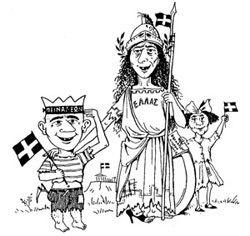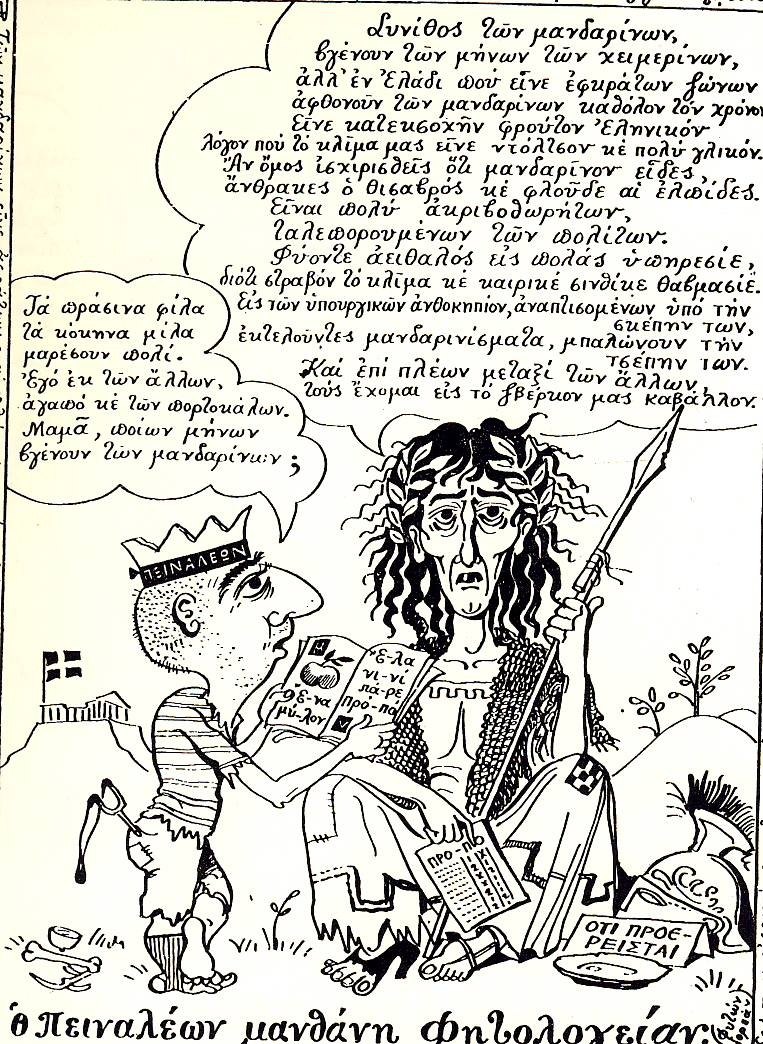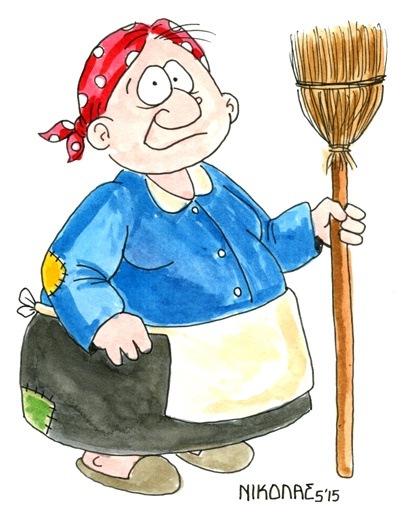Chad, you’ve been answered by the best, Gigi J Wolf. So there’s little for me to add.
I’ll go ahead anyway.
First of all, my immediate reaction was: Who the hell are you, OP, and what the hell have you done with Chad Turner?
Knowledgeable, studious, taciturn Chad. Always at the ready in the Classics questions with a well thought out answer, but a man of few words and dry. This does not sound like the kind of question Chad would pose, surely.
In fact, Chad came up in conversation I had once with another Quoran, linguâ graecobarbarâ. (The context was Hellenists’ reactions to another poster.) That was the closest I’ve ever been to stalking him. “Nice guy, but a bit stryphnos” was my interlocutor’s remark. Yeah, I guess you could translate stryphnos as “dry”.
Ignore any negative connotations you might find in your Greek–English dictionary under stryphnos. Greeks don’t get dry.
In order to ascertain who the hell OP is, and what the hell he has done with Chad, I popped over to his feed. I do follow Chad, but I don’t see his stuff that often.
My verdict:
…. You’re goddamn hilarious, Chad (or whoever it is that’s running Chad’s feed). The non-Classics answers sound like they’re written by the selfsame guy who writes the Classics answers I’ve seen, and they are fricking bone-dry delicious. I am pissed off that I haven’t seen more of your stuff, and you’re getting a shovel of upvotes from me to address that.
So why haven’t you been stalked?
- Dry and curt makes you a very small target. Most Quorans, like most Greeks, don’t get dry.
- You’re not an attention-whore like, oh, me: you don’t seem to chit chat much, or hang out in threads full of selfies or interminable flame wars.
- And of course, all the stuff Gigi enumerated. Including cleavage.
Is the pic you, btw, or some pop culture reference I’m too Australian to get? I can’t work it out.
EDIT: Hey, we’re both 45! I think you’ve got yourself a stalker!


